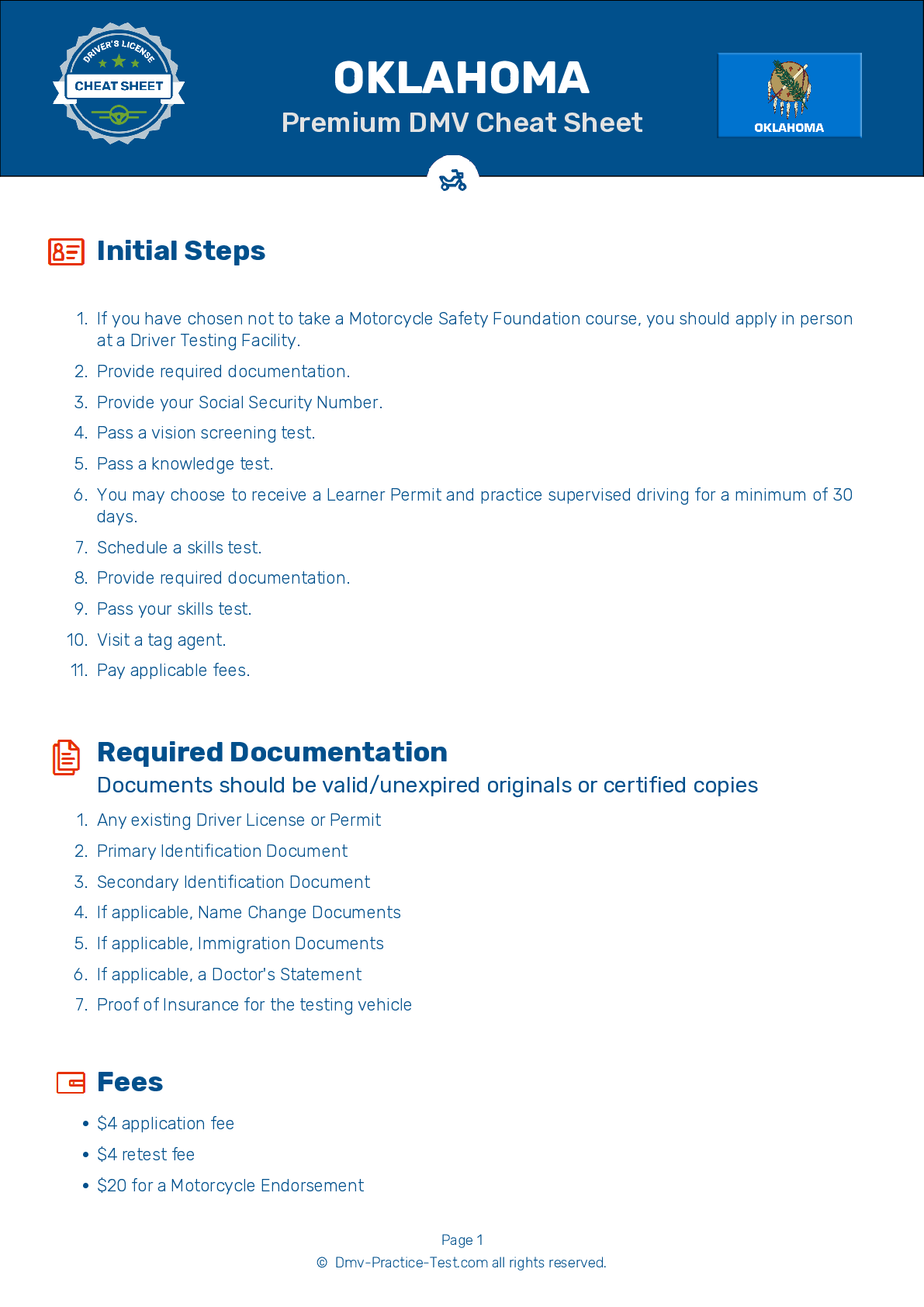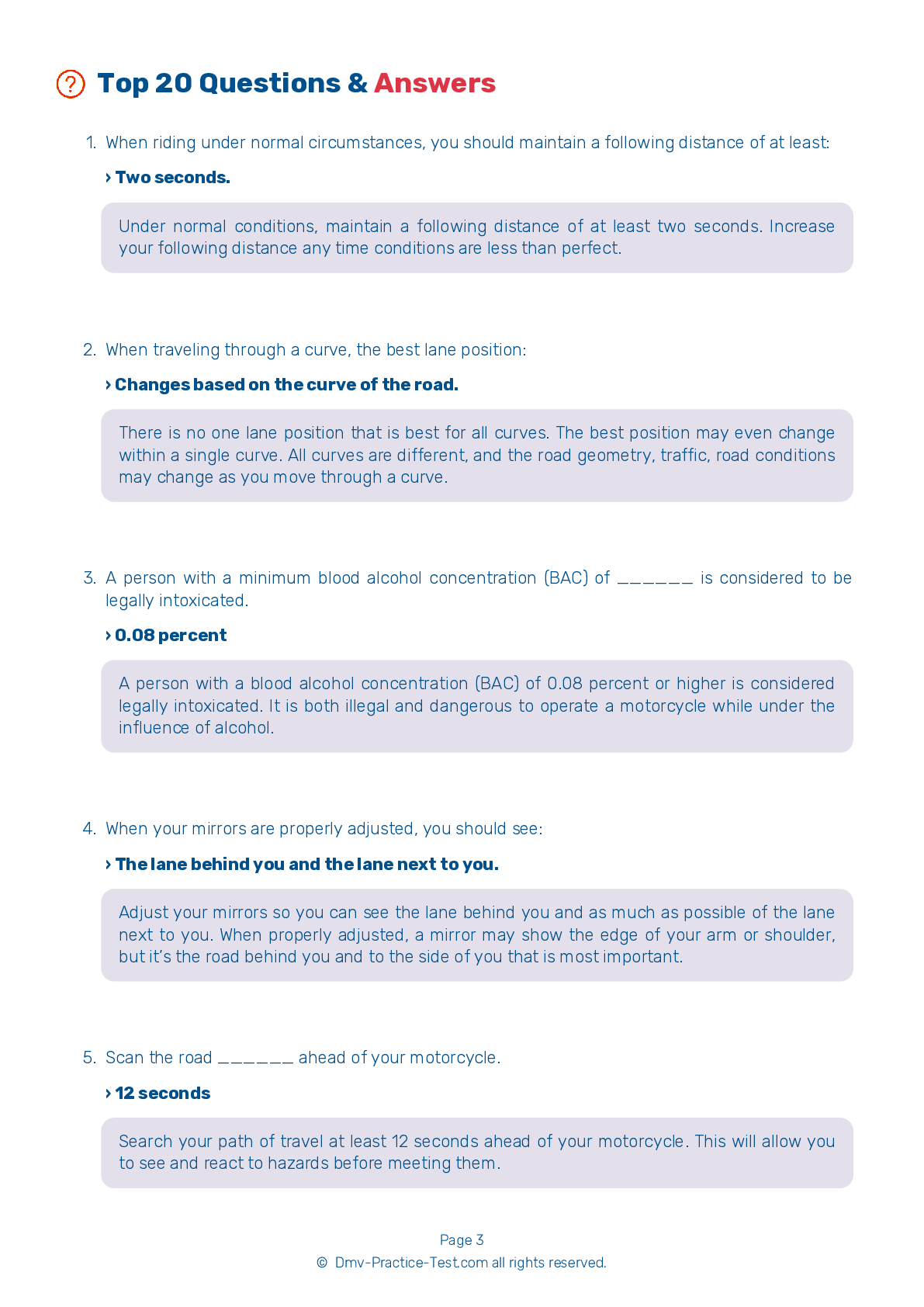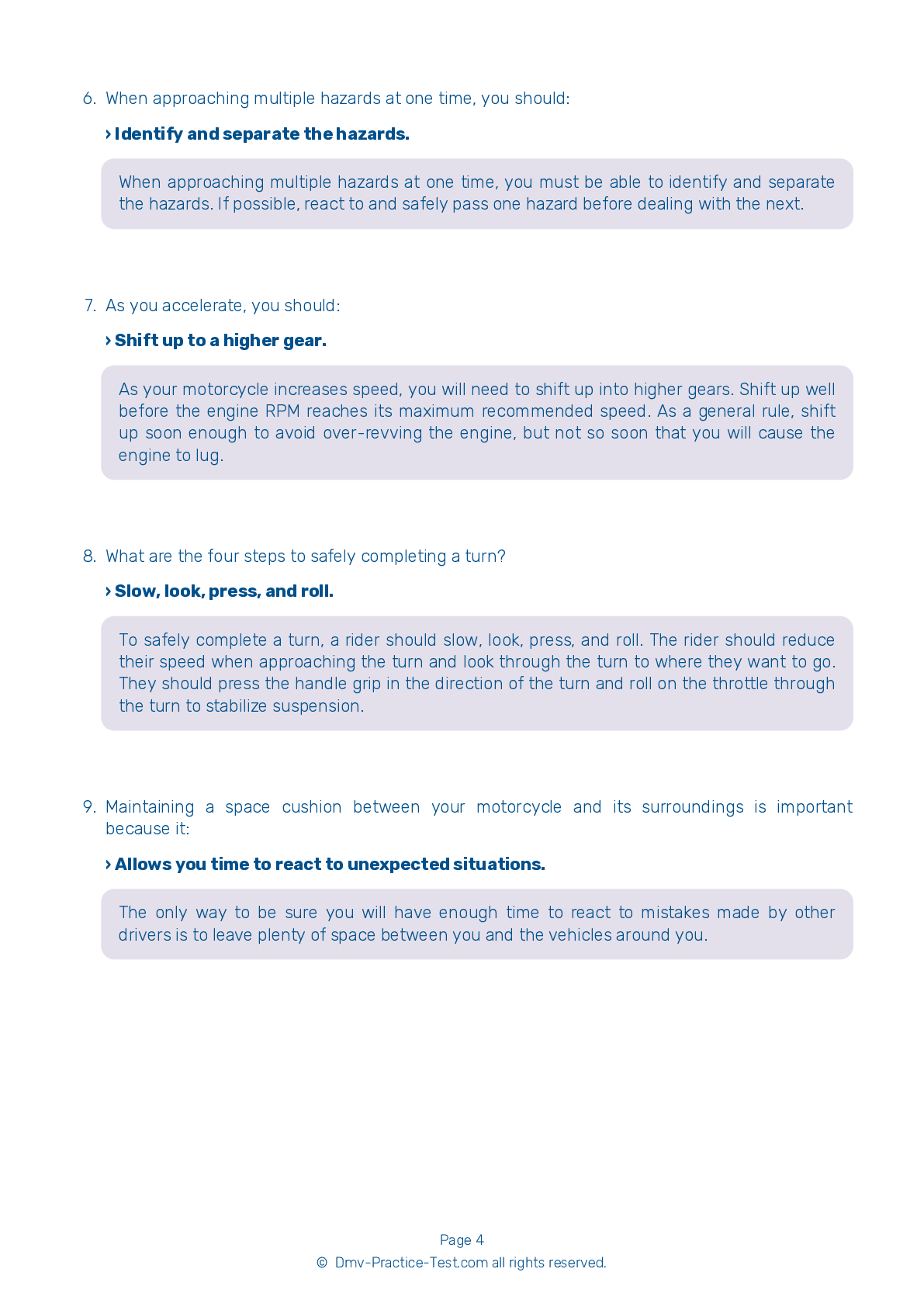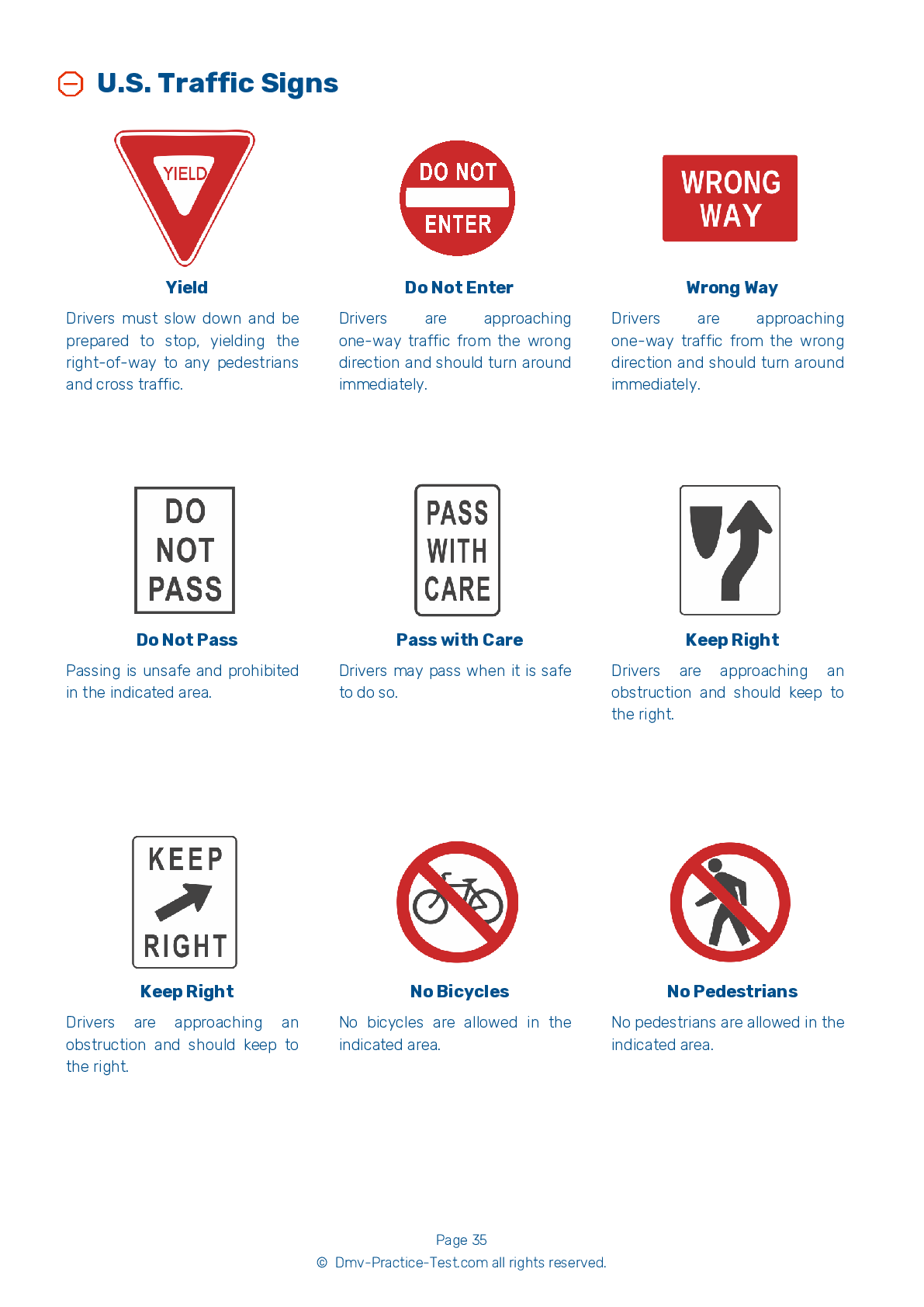Motorcycle Test | License OK 2026 | FREE Online Practice! #1 Page 3 of 3
Take this FREE motorcycle test (license in OK 2026) to check your knowledge of the road rules. To improve your results, download a motorcycle handbook online, study theory, and practice for free on our website. Still worried about how to get a motorcycle license in Oklahoma in 2026? Check our website for more sample tests, train as much as possible, and boost your grades!
15 . Which of the following surfaces provides the best traction for a motorcycle?
A number of surfaces can provide poor traction for tires. Wet pavement; roads covered in loose gravel or sand; muddy, snowy, or icy areas; painted lane markings; and metal covers and plates in the road can be more hazardous for a motorcyclist than dry pavement.
16 . In general, when parked on the road, a motorcycle should be:
If parking in a parallel parking space next to a curb, it is generally best to position your motorcycle at an angle with the rear wheel to the curb. It should be noted that some cities have ordinances that require motorcycles to be parked parallel to the curb.
17 . To be seen in the rearview mirror of the driver ahead of you, you should:
If you are following a car, the driver is most likely to notice you if you position yourself behind them in the center of your lane. This lane position places you in the driver's rearview mirror. Most drivers check their rearview mirrors much more frequently than they check their side mirrors.
18 . The front brake:
Always use both brakes any time you slow or stop. It is safe to use the front brake, which is more powerful than the rear brake, as long as you use it properly.
19 . A rider's lane position should:
When in an ideal lane position, a rider is visible to other drivers while avoiding wind blasts coming from other vehicles.
20 . When does an Anti-Lock Braking System (ABS) begin operating?
Some motorcycles are equipped with an Anti-Lock Braking System (ABS). ABS is designed to prevent skidding and wheel lock-up when motorcyclists are stopping in straight-line, panic situations. ABS operates when maximum pressure is applied to both the front and rear brake controls. If electronic sensors detect the possibility of a wheel lock, brake hydraulic pressure is released then re-applied to maintain maximum braking effectiveness.
See the exact questions that will be on the 2026 Oklahoma DMV exam.
99.2% of people who use the cheat sheet pass the FIRST TIME
Jeneen was tired of paying $5/gallon. She got herself a scooter that required the motorcycle license. She studyed the motorcycle test cheat sheet and passed her test the next day!
Christopher tells us how he knew nothing prior to obtaining the motorcycle study guide, and he only got one question wrong because he clicked on the wrong answer by mistake.



